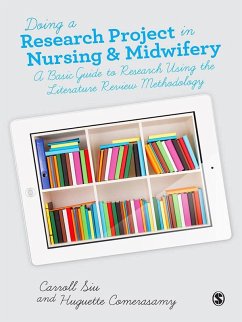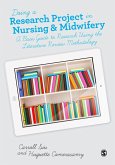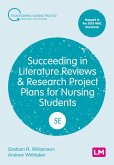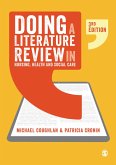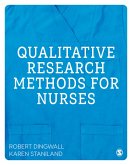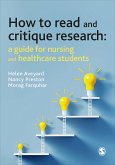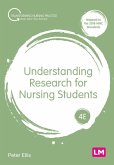Due to ethical issues surrounding data collection in the field of healthcare, students are no longer able to undertake their own empirical research. This book is written for nursing and midwifery students completing a research project based on reviewing published literature and using secondary data. It de-mystifies the concept of literature review methodology and supports students writing up their dissertation, thesis or work-based learning project.
The book provides step-by-step guidance on:
- Identifying a research problem
- Qualitative and quantitative research design
- Literature searching
- Ethical considerations
- Analysis of secondary data
- Writing your dissertation
Through its discussion of non-empirical methods, the book also prepares students for future empirical research by providing examples of best practice in healthcare research. The book is essential reading for undergraduates and postgraduates who want to succeed in their nursing or midwifery research project.
The book provides step-by-step guidance on:
- Identifying a research problem
- Qualitative and quantitative research design
- Literature searching
- Ethical considerations
- Analysis of secondary data
- Writing your dissertation
Through its discussion of non-empirical methods, the book also prepares students for future empirical research by providing examples of best practice in healthcare research. The book is essential reading for undergraduates and postgraduates who want to succeed in their nursing or midwifery research project.
Dieser Download kann aus rechtlichen Gründen nur mit Rechnungsadresse in A, D ausgeliefert werden.
'This book distinguishes itself from the hundreds of books on qualitative and quantitative research with its focus on the literature review as a methodology. While its main audience is students in nursing and midwifery, clearly, students, instructors and researchers in many fields will find this a most useful volume for understanding and conducting a study using empirical and non-empirical literature as the data base. A real strength of this book is its engaging and user-friendly style. It is as if the author is sitting next to us, gently and clearly leading us through the entire process of doing this type of research beginning with the meaning and purpose of research, to identifying the research problem, collecting and analyzing data, presenting the findings, and finally, writing the research report. Each chapter begins with specific "Aims and Objectives" and closes with "End of Chapter Learning Points. Throughout the book the author connects with the reader through exercises, examples, charts and figures that reinforce the learning. And unlike many other research books where ethics is merely mentioned in passing, the authors explain the ethical principles of integrity, transparency and accountability and show how they permeate the research process. In summary, this up-to-date, comprehensive and engaging volume has accomplished what few other research texts have-it not only extends our understanding of the literature review methodology, it enables us to actually engage in this type of research' -
Sharan B. Merriam, Professor Emeritus, The University of Georgia, USA and author of Qualitative Research: A Guide to Design and Implementation
Sharan B. Merriam, Professor Emeritus, The University of Georgia, USA and author of Qualitative Research: A Guide to Design and Implementation

